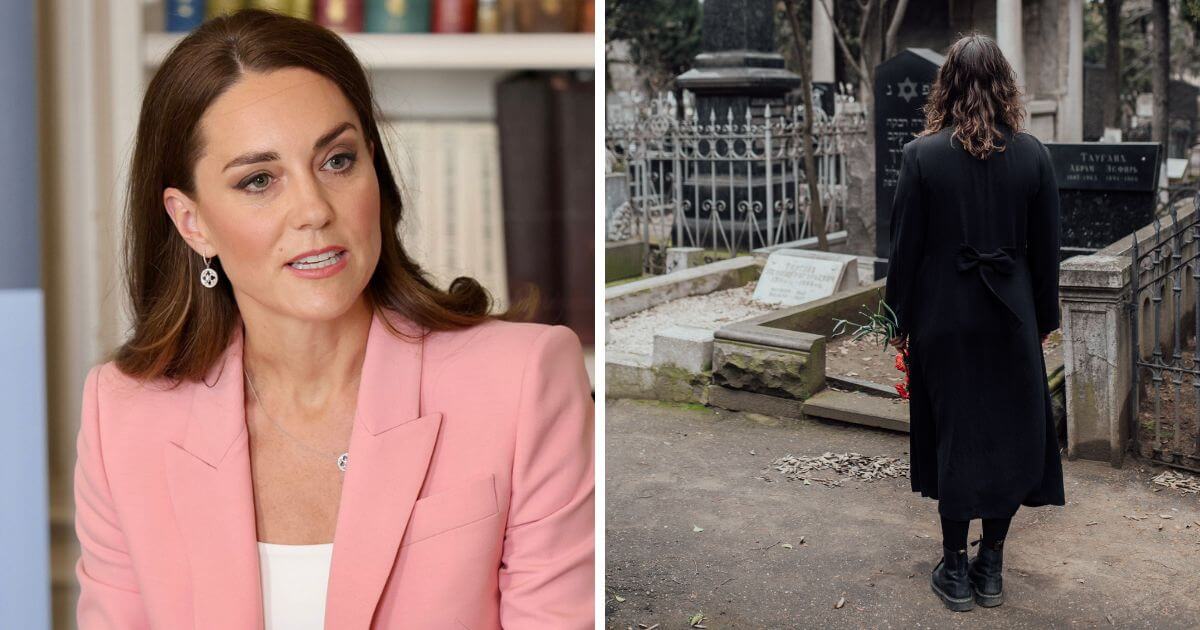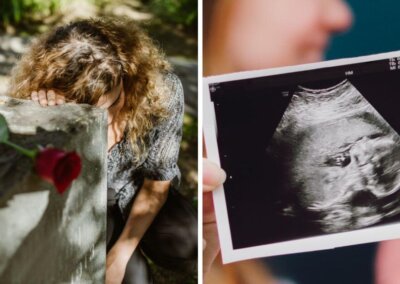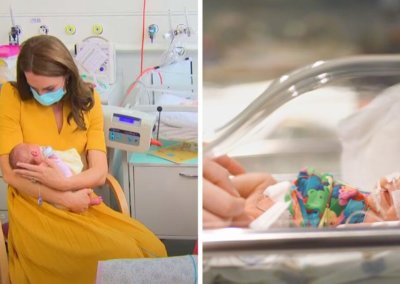Last week, during Baby Loss Awareness Week in the UK, the Prince and Princess of Wales used their social media accounts to raise awareness about those charities helping grieving parents who have lost a baby, before or after birth.
The event, which exists to “support bereaved parents and families and to unite with others across the world to commemorate their babies’ lives and lost pregnancies”, is reportedly close to the Princess’s heart. Her own pregnancies were challenging because she suffers from hyperemesis gravidarum, a condition that leads to severe pregnancy sickness.
In previous years, the Princess has visited charities related to baby loss such as Tommy’s, which focuses on preventing baby loss during pregnancy and supporting parents through pregnancy.
On Twitter, the Prince and Princess of Wales wrote: “Taking a moment this #BabyLossAwarenessWeek to think about all those who’ve been affected by pregnancy and baby loss”.
They then provided a list of organisations that help with pregnancy loss.
“They have free resources available and, if you’re struggling, advise you to be kind to yourself and know support is available”.
Pregnancy loss certificates
Earlier this year, the Government, under then Prime Minister Boris Johnson, announced it would introduce a pregnancy loss certificate for those who lose their babies before the 24th week of gestation.
As part of a new initiative that will require medical students to pass mandatory training to diagnose and treat women’s health conditions, the Government also committed to introducing a certificate to provide legal recognition for women whose babies die within the first 24 weeks of pregnancy.
If a baby dies in the womb and is delivered after 24 weeks, his or her death is registered as a stillbirth. However, if the baby dies before then, the baby does not receive a death certificate and is registered as a miscarriage.
According to the Independent, around 14 babies die before, during or soon after birth in the UK every day, but campaigners have long warned the issue is routinely ignored by society and remains a taboo.
Right To Life UK spokesperson Catherine Robinson said: “It is encouraging to see the Royal family championing an issue that gets so little coverage. We must remember, of course, those babies whose lives are lost through abortion. Their lives matter”.












